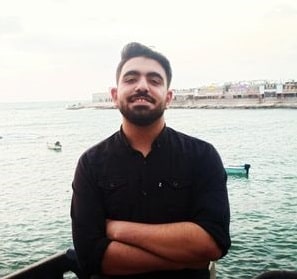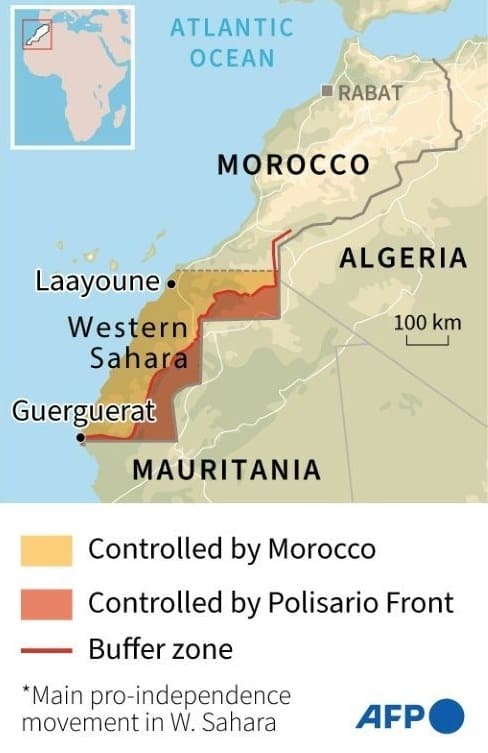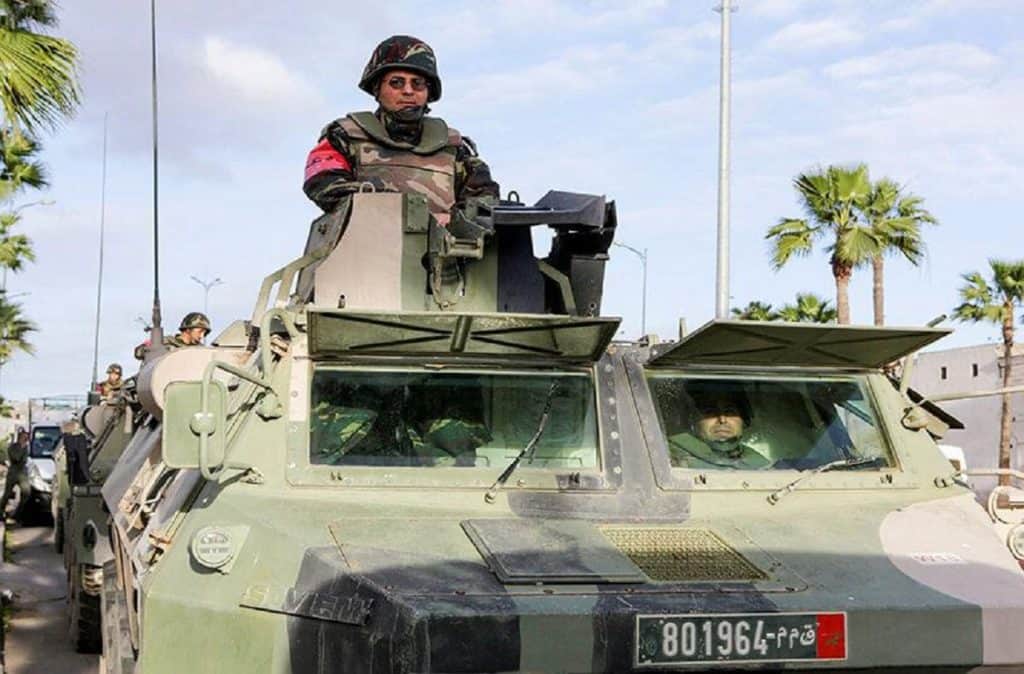By Eslam Abdelmagid Eid
On 13 November 2020, Morocco carried out a military operation in the border region of Guerguerat in Western Sahara, after weeks of increasing tension, due to the closure of the Guerguerat crossing between Mauritania and Western Sahara by the Polisario Front.

The Moroccan Foreign Ministry affirmed that “the acts of the Polisario in Saharan Morocco undermine the chances of a possible relaunch of the political process” and added that Rabat has decided to move militarily to face what he called the dangerous provocations of the Polisario.
The roots of the conflict between the Kingdom of Morocco and the Polisario Front date back to the mid-seventies of the last century. On May 20, 1973, the Polisario Movement was born, initially with the aim of liberating the Sahara from Spanish colonialism. Spain’s occupation of Western Sahara was then officially declared concluded with the signing of the Madrid Agreement between Spain, Morocco and Mauritania on November 14, 1975. The agreement provided for the division of the Sahara between Mauritania and Morocco, while Spain maintained the exploitation of the Boucraa mines and military bases off the Canary Islands.
Meanwhile, the International Court of Justice in The Hague, in its advisory opinion, delivered on October 16, 1975, to the United Nations Security Council, declared that it had not found any close link of territorial sovereignty between the territory of Western Sahara and the Kingdom of Morocco, or the Mauritanian entity, that might affect the application of the 1960 General Assembly resolution 1514 (XV) – containing the Declaration on the granting of independence to colonial countries and peoples – in the decolonization of Western Sahara and in particular, the principle of self-determination through the free and genuine expression of the will of the peoples of the territory.
The Polisario Front, supported by Algeria (for its historic hostility to Morocco) and Libya, eager to establish an independent Sahrawi state in the territory, bitterly opposed the Madrid agreement, declaring the constitution of the “Sahrawi Arab Democratic Republic” (SADR . From 1975 to 1991, the Polisario fought against both Mauritania and Morocco, to drive their forces out of the region. Mauritania, after a military coup that overthrew President Mukhtar Ould Daddah, who was considered an ally of Morocco, withdrew its armed forces from the disputed territory and in 1979 signed a peace agreement with the “Sahrawi Arab Democratic Republic.”, while Morocco concluded a ceasefire agreement with the Polisario Front in 1991.
The Security Council of the United Nations, with Resolution no. 690, of 29 April 1991, established the United Nations Mission for the Referendum in Western Sahara (MINURSO) with the mission of monitoring the ceasefire and of organizing and conducting a referendum that would allow the Sahrawi people of Western Sahara to choose between integration with Morocco and independence. However, this decision has not yet been implemented and at the moment no such referendum is planned, meanwhile Morocco’s proposal to grant autonomy for Western Sahara, which is rejected by the Polisario Front. Rabat insists on its right to Western Sahara, and has proposed a system of self-government under Moroccan sovereignty, while the Polisario Front insists on a referendum to determine the future of the region (backed by Algeria, which hosts refugees from the conflict zone) .
However, this decision has not yet been implemented and at the moment no such referendum is planned, meanwhile Morocco’s proposal to grant autonomy for Western Sahara, which is rejected by the Polisario Front. Rabat insists on its right to Western Sahara, and has proposed a system of self-government under Moroccan sovereignty, while the Polisario Front insists on a referendum to determine the future of the region (backed by Algeria, which hosts refugees from the conflict zone) .
In the 1990s and 2000s, the conflict continued as an “Intifada for Independence” with a series of riots and protests, and other disturbing actions by the Polisario.
Currently much of Western Sahara is controlled by the Moroccan government and known as the Southern Provinces, while about 20% of the territory of Western Sahara is controlled by the “Sahrawi Arab Democratic Republic”, the state of Polisario, but with few international diplomatic recognition.
The new escalation of tension
The Guerguerat border region (declared a demilitarized zone under the 1991 ceasefire agreement) is the main land corridor between Morocco and Mauritania. It has been closed since 21 October by Sahrawi demonstrators loyal to the Polisario Front, who have blocked the passage of goods and individuals, protesting against the activities taking place in this crossing area and also against Morocco’s alleged obstruction in the process of appointing a new UN envoy in Western Sahara, after the resignation of former UN envoy Horst Kohler in May 2019 for healthy reasons.
Moroccan security forces launched a military operation in Western Sahara on November 13, to reopen the border and on November 14 Rabat announced the resumption of transport links and the movement of goods and people to and from Mauritania through the Guerguerat crossing, after a military mission.
In response, the Front declared the end of the ceasefire agreed with Morocco in 1991. Mohamed Salem Ould Salek, Minister of Foreign Affairs of the so-called Sahrawi Arab Republic, said that Morocco uses the Guerguerat road to plunder natural resources. The Front also believes that the military operation conducted by Morocco to reopen the Guerguerat border crossing in the buffer zone towards Mauritania is a declaration of a state of war, and that this operation represents a clear violation of the ceasefire agreement in effective since 1991 under the auspices of the United Nations.
Many Arab and African countries have supported Morocco in its operation against the Polisario Front to reopen the border. This comes at a time when some Arab countries have announced their intention to open consulates in Western Sahara, led by the UAE, who have announced a consulate general in the city of El-Ayoun, followed by Libya, that some of its officials held several meetings with the Moroccan authorities to prepare the Libyan consulate general in the city of El-Ayoun. Perhaps Jordan also intends to announce the opening of a diplomatic representation in Western Sahara, according to Moroccan royal sources.
Therefore, the Front therefore faces an extremely difficult challenge, at a time when it lacks much of the support it had previously obtained, both from international and regional parties.
Will the conflict reach the point of no return?
Certainly the situation in Western Sahara today is very different from that of the seventies and eighties, due to the weakness of the Polisario Front due to a series of factors that made it lose its ability to resist Morocco, which largely controls the country situation, therefore the confrontation, if renewed, will not be as acute as before.
Libya, which from the beginning supported the front and contributed to its foundation, abandoned it from the beginning of 1984. Mauritania, which at the end of the 1970s announced the exit from the conflict with the Polisario and its commitment to neutrality, has become over the time closer to Morocco, given the growing economic relations and significant trade exchanges with Rabat, especially through the Guerguerat border crossing, which is in Mauritania’s interest to remain open.
Algeria, the biggest supporter of the Polisario, is no longer what it was in the past, as the crises that have hit Algeria in recent years have greatly exhausted and weighed it down. Algerian military support for the Polisario has decreased significantly compared to the past and it will not be able to face the risk of military support to the Polisario Front when it is faced with internal political crises and a difficult economic situation.
In addition, international and African sympathy for the Sahrawi people’s cause has diminished. The international support that was provided by the countries of the Eastern camp in the seventies and eighties of the last century ended with the collapse of the Eastern bloc at the beginning of the nineties of the last century. Also the sympathy that was present in the past within the African Union for the Polisario cause, has been dissolved completely with the return of Morocco in this organization.
The most important point, undoubtedly, is that Morocco currently possesses modern and advanced weapons compared to what it had previously, which made it capable of adapting and facing the guerrilla warfare with the Polisario Front, with an evident impact on the ground.
Author: Eslam Abdelmagid Eid (Academic, political researcher, and specialist in Middle East affairs)
(The opinions expressed in this article are solely those of the authors and do not necessarily reflect the views of World Geostrategic Insights)
Image Credit: Reuters







